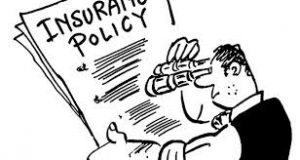For most homeowners, replacing their first roof can be a daunting and confusing process. More times than not, homeowners are coming face-to-face with their insurance policies for the first time when they file their initial claim. Below are some common questions and misconceptions that surround the claims process once your roof has been paid for, as well as some common terms.
What does ACV and RCV imply on my insurance estimate?
The insurance settlement and payment is based upon your policy provisions, terms and coverages.
- The (ACV) represents (Actual Cash Value). Your first insurance check is paid based on the (ACV). This is usually determined by the age of your roof and current worth of your roof today.
- The (RCV) represents (Recoverable Cash Value). This is the amount paid upon the completion of all repairs. If all repairs are completed, you will be paid the additional RCV.
Once all repairs are completed, there is no out-of-pocket expense incurred by you, except for your insurance deductible
Why is my State Roofing estimate different from my insurance estimate?
A difference in price between your contractor’s estimate and your insurance estimate is very common. State Roofing and your insurance company use similar estimating software to determine the exact cost of repairs. However, due to local price increases, missed items and incorrect measurements you may notice a difference in the price of both estimates.
Having your roof contractor go over your insurance estimate is vital for finding errors on the insurance company’s part
Why did the insurance company withhold depreciation?
There are two reasons that the insurance companies hold some money back.
- The first reason is to make sure that you get the work done. Past experience has shown them that, if they give the customer all the money up front, many people end up spending it on something else.
- The second reason is that they wish to make sure that you pay your full deductible. The insurance companies reason that, if you are given all the money to begin with, many people would naturally try to find a contractor who would perform the job for the dollar amount in hand. By holding a retainer amount, they can adjust the amount of the final payout based on the roofing contractor’s invoice, thus assuring that the customer does pay the deductible.
How can I avoid paying the deductible?
Legally, you can’t. Of course, a roofer in collusion with a homeowner can submit falsified invoices. However, doing so is insurance fraud. Please don’t ask us to do this.
